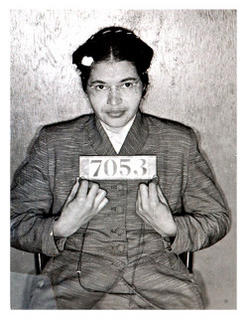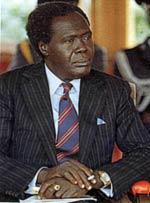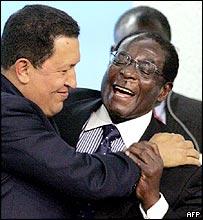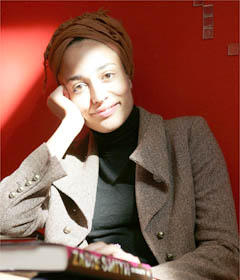Arab Press torn on Ahmadinejad statement
 The media across the Middle East has been torn on how to think about the statements made by Iranian president Mahmoud Ahmadinejad. Ahmadinejad told some 3,000 students in Tehran last week that Israel's establishment had been a move by the West against the Islamic world.
The media across the Middle East has been torn on how to think about the statements made by Iranian president Mahmoud Ahmadinejad. Ahmadinejad told some 3,000 students in Tehran last week that Israel's establishment had been a move by the West against the Islamic world."As the Imam said, Israel must be wiped off the map," he said, referring to Iran's late revolutionary leader, Ayatollah Ruhollah Khomeini.
While some Arabic newspapers received the statement with sympathy with respect to the Palestinian plight, others believe that it was in bad taste and counter-intuitive.
UK-Based Al-Hayat: The 'elimination of Israel' stems from the same frame of mind as the Israeli strategic aim of 'eliminating Palestine'... which Israel accomplishes on a daily basis through organised killings... Whatever people think about the Iranian stance, the fact remains that highlighting 'indifference to Zionist crimes' is legitimate and true.
Egypt's Al-Ahram: It is most likely that the Iranian president was not thinking when he made these statements, or perhaps he was imagining that he was still in his fanatical days of youth and not yet president of Iran. Unfortunately, the situation is now different... If the Iranian president feels concerned about the Palestinian lands, then it is best for him to withdraw from the three islands of the Emirates that Iran has occupied for over ten years. It is best for him to stop interfering in Iraq's internal affairs. It is also best for him to know that the ordinary Arab knows very well that such fanatical statements will only spell disaster.
Iran's Resalat: Following their defeat in Gaza and Iraq, Israel and America are trying to intensify their psychological war against Iran... America and the Zionist regime have often expressed their wish to subvert the Islamic republic. But they find it intolerable when the Iranian president repeats the words of the Imam [Ayatollah Khomeini] and the Iranian nation.
Iran News: Some observers point out that Ahmadinejad's controversial comments were in fact an exact quote from the late Imam [Ayatollah Khomeini]. However, the West has opportunistically used the president's remarks in line with its strategic goal of pressuring, isolating and confronting the Islamic republic. Furthermore, this pre-staged scenario provides further ammunition for Europe and the USA, which aim to report Iran's nuclear dossier to the Security Council. What's more, the West has now found a pretext to blame Iran for the violence in the long-running Israeli-Palestinian conflict.
Jordan's Al-Ra'y:No-one knows whether the Iranian president's remarks on Israel on 'wiping Israel off the map' were merely a slip of the tongue or simply deliberate. Whatever the case, Ahmadinejad's remarks have caused an additional problem for Iran... in the light of [Israeli deputy prime minister] Shimon Peres' demand that the UN secretary-general and the Security Council revoke Iran's membership in the world body.











